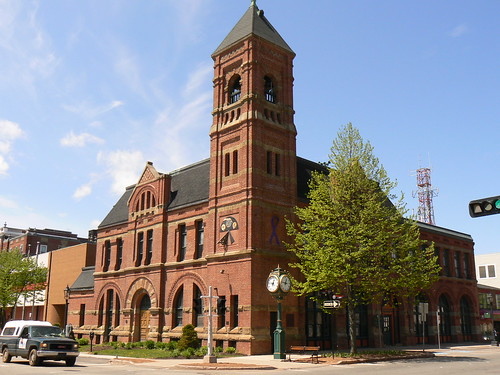
CHARLOTTETOWN – If political participation in Charlottetown, the capital of PEI, is any indicator of the malaise of the general population, then we are in significant trouble indeed. Charlottetown’s 32,000 citizens are represented by ten councilors elected in a ward system and, while candidate nominations closed Oct 8th at 4PM, only 7 of the 10 wards have challengers to the incumbent. The tragedy is not only that the electoral process is being circumvented, or that without multiple candidates voter turnout for the electoral reform plebescite will be crippled, but that we are willingly surrendering our hard-earned right to participate in an election for our civic representatives.
Some might suggest that politics is a thankless job, where the only feedback from the electorate is negative. Others decry the demands on both family and work as civil service often forces concessions on both fronts. Both arguements are likely right. Politics is a thankless job, one that few are willing to take on in an era that is still reeling from the hyperconsumption, hyperselfishness of the 80s and 90s. Aside from a few exceptions, most of the current councilors fit neatly into the 40+ demographic, have the backing of either influential family members, influential political party members, or both. It is those luxuries that soften the blow of family and work interruptions, while only the thick skin of experience or disconnection can mitigate the thanklessness. Though not all of the announced council candidates are commonly known, it is hard to believe that we have fostered an environment where we can expect anything other than more of the same for this year’s choices.
The dearth of political candidates in Charlottetown is even more tragic, given the electoral reform plebiscite that is co-habitating the ballot November 1st. Electors, at least those that have a reason to come to the ballot box, will be able to cast a vote to reform the current ward-based electoral system, opting for either an ‘at-large’ system — that is all candidates compete in all wards of the city — a mixed-system combining both ‘at-large’ and ward-based candidates, or simply to maintain what is already in place. If there is no election being held in a ward due to acclamation, as is the case in wards 3 (Brighton), 5 (Spring Park) and 10 (Falconwood), what motivation do electors have to visit the polls? Electoral reform is a sleeper issue, with very few understanding the full impact of the proposed changes until it is far too late to have a say in the matter.
Charlottetown is facing profound challenges while being presented with vast opportunities. As the social and political climates rapidly shift around the world, Charlottetown risks being swept aside in these seas of change. Without the ability to elect our municipal representatives, thus jeopardizing our electoral reform plebiscite by low voter turnout, we are facing a future where accepting the status quo as good enough. That is one hell of a risk to take.
Photo by Pierre LeBlanc

5 comments
I’d be interested to see past stats of voter turnout in Charlottetown elections with information about how many ran. I know the Island has a pretty good track record (compared to the rest of the country) when it comes to voter turnout. I wonder if we have a new phenomenon of candidate apathy, or if this is just the way things roll around here.
Using the Elections PEI data for Charlottetown mayoral races, the turn out breaks out like this for the past 5 elections:
1994, 64.9%
1997, 66.2%
2000, 56.4%
2003, 57.3%
2006, 58.7%
voter turn out provincially is typically in the mid 80’s
Re how many ran:
1994, 35
1997, 31
2000, 21
2003, 34
2006, 23
If those numbers reflect mayoral candidates, then we are at 22, putting us above our millenial election and behind 2006. If not, then we’ve got 19 candidates for 2010, which is the lowest of the lot above.
Those voter turnout numbers are abysmal. We’re actively encouraging people to get out and vote via our congregation. We aren’t telling them how to vote, simply to get educated on who is running, what the issues are and then acting in their civic duty and voting.
It is going to be hard to buck a decades old trend though…
Sounds like an awful lot of councillors for a small number of voters. 10 for 32,000 means perhaps one councillor for every 2,500 people. Perhaps they would have more competitive races if they had a council of 4 members plus a mayor.